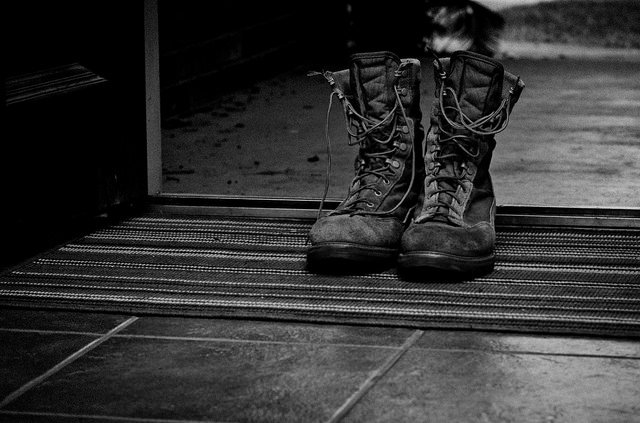- Title: Thorns in My Boots
- Author: Awoleye Ayokunle Dominic
- Publisher: Parrésia Publishers Ltd
- Number of pages: 153
- Year of publication: 2017
- Category: Fiction
They say the rose flower also has thorns, but my life was just merely thorns, all the flowers were withered. They say it is he that wears the shoe that knows where it pinches; I decided not to wear just a shoe but boots. But my boots were full of thorns and it pinched me all over.
Thorns in My Boots is the short, gripping tale of a young man, Ojo, and his struggle for identity as he wrestles to restore his family’s dignity. The death of his father, a palmwine tapper and dipsomaniac, when he was only two years old leaves only him and his mother, a petty trader. He grows up with a strong sense of determination to complete anything he sets his mind to, hence his childhood moniker, ‘wa pa mi l’oni’, meaning you will have to kill me to stop me.
At 12, he earns money from working as a farmhand during school holidays. At 18, he fails his WAEC O-level examinations. His greatest ambition after failing the O-level is to become a bricklayer and rebuild his mother’s mud hut, thereby restoring her dignity.
At 18 he leaves home to join the army. He undergoes nine months training in Zaria, Nigeria, which he describes as ‘nine months of hell’: some recruits die while some drop out. But the training only toughens him. At the end of his training he is drafted into the Signal Corps and posted to the 82nd Division in Enugu. His new life begins auspiciously and he has grand plans to send for his mother. He even buys a car which, unbeknownst to him, was not only stolen but had been used in a robbery, a murder and a rape. On suspicion of his involvement in the crimes, he is unceremoniously arrested and hurled into gaol.
While in gaol, he quickly discovers a system riddled with corruption. He receives little help from the army and laments:
I guess I was not destined to stay in the army because whenever I wore those boots, things went sour for me; it is like there are thorns in them that I had to pull them out before I get some comfort.
Thorns in My Boots, which is written in the first person, is a good read. The author, who, himself, grew up as a ‘barrack boy’, is obviously knowledgeable about army life, particularly during the Sani Abacha regime.
The author chronicles, in riveting detail, the misfortunes which befall the hero and his sheer grit and never-say-die attitude which see him through. Ojo also finds succour in his mother’s unshakeable love and the support of his lawyer, Amaka.
The author writes in simple, straightforward English. He employs witty and sometimes sarcastic language, vivid imagery, proverbs and humour in what should otherwise be a fairly miserable story. An instance is when, after his arrest, Ojo is taken before the DPO in Agbor, whom he describes as:
… a monstrous looking man with nose like that of a hippopotamus. His nose was so wide that you could see the redness of the cartilage inside his nostrils; his lips were large and drooping, exposing teeth tanned with kolanut and his eyes were bulging and glossy…I instinctly [sic] knew we were before the devil.
Awoleye is also adept at wordplay. The protagonist declares, ‘They call it a correction centre, but it is actually a corruption centre’, when he becomes a small businessman selling groundnuts and garri in prison to survive. As he describes it, ‘that was the first ray of light in my darkness’.
From time to time the protagonist speaks directly to the reader:
I pray for you today as you read my story that you and your loved ones shall never be inmates of prisons anywhere – in prison you are reduced to less than a human being.
The use of imagery is sometimes startling, as when Ojo says that the only safe place to hide his money is in his anus. There is also a wealth of information on corruption within the army and the prisons. While in prison, Ojo is told that ‘without money, you will die in here. Money makes things happen here’. Through Awoleye’s use of the first person, he is able to take the reader into both worlds in order to understand that things are not always as they seem.
On the whole, this book succeeds in what it sets out to do, which is to show that there is light at the end of what initially seems like a very dark tunnel. As long as there is life there is hope, and after sorrow will surely come joy.
Photograph: ‘Retirement’ by Mark Bonica
Comments should be sent to comments@wawabookreview.com. Please use the appropriate review title in the email subject line.

